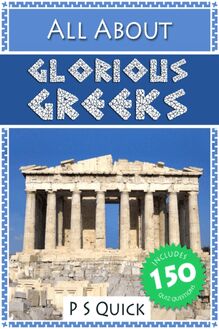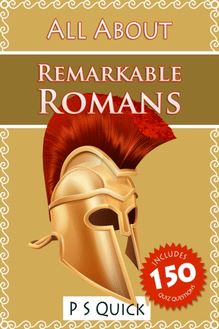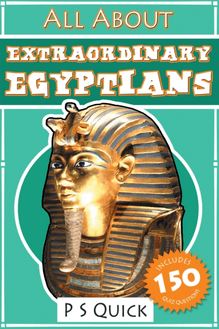-
 Univers
Univers
-
 Ebooks
Ebooks
-
 Livres audio
Livres audio
-
 Presse
Presse
-
 Podcasts
Podcasts
-
 BD
BD
-
 Documents
Documents
-
- Cours
- Révisions
- Ressources pédagogiques
- Sciences de l’éducation
- Manuels scolaires
- Langues
- Travaux de classe
- Annales de BEP
- Etudes supérieures
- Maternelle et primaire
- Fiches de lecture
- Orientation scolaire
- Méthodologie
- Corrigés de devoir
- Annales d’examens et concours
- Annales du bac
- Annales du brevet
- Rapports de stage
La lecture à portée de main
Vous pourrez modifier la taille du texte de cet ouvrage
Découvre YouScribe en t'inscrivant gratuitement
Je m'inscrisDécouvre YouScribe en t'inscrivant gratuitement
Je m'inscrisEn savoir plus
Vous pourrez modifier la taille du texte de cet ouvrage
En savoir plus

Description
Informations
| Publié par | Andrews UK |
| Date de parution | 05 mars 2015 |
| Nombre de lectures | 0 |
| EAN13 | 9781782345657 |
| Langue | English |
| Poids de l'ouvrage | 4 Mo |
Informations légales : prix de location à la page 0,0150€. Cette information est donnée uniquement à titre indicatif conformément à la législation en vigueur.
Extrait
Title Page
ALL ABOUT
GLORIOUS GREEKS
P S Quick
Publisher Information
Published in 2013 by
Andrews UK Limited
www.andrewsuk.com
The right of P S Quick to be identified as the Author of this Work has been asserted in accordance with the Copyright, Designs and Patents Act 1998
Copyright © 2013 P S Quick
All rights reserved. No part of this publication may be reproduced, stored in a retrieval system, or transmitted, in any form or by any means without the prior written permission of the publisher, nor be otherwise circulated in any form of binding or cover other than that in which it is published and without a similar condition being imposed on the subsequent purchaser. Any person who does so may be liable to criminal prosecution and civil claims for damages.
Picture Credits:
Archaic Greece
Greek pottery showing soldier courtesy of Giovanni Dall’Orto
Greek pottery showing javelin thrower courtesy of Marie-Lan Nguyen
Classical period:
House ruins courtesy of Marcuscalabresus
Sculpture of Alexander the Great courtesy of Dall’Orto/ Wikimedia Commons
Pottery showing Hades courtesy of Marie-Lan Nguyen / Wikimedia Commons
Introduction
This book, filled with amazing facts and photographs, describes what life was like for Ancient Greeks. It gives an in-depth account of all aspects of life and people of the time - including sections about the Olympics, Gods, heroes, the Trojan War, city-states, famous people and much more!
The ‘All About’ series is an educational collection of books from P S Quick, and is targeted to interest 7 to 11 year olds - but will fascinate readers of all ages. At the end of each book there is a quiz section for the reader, featuring 150 questions and answers.
A Landscape Shapes History
T he landscape of Greece has shaped its history from the earliest times. Three quarters of Greece is covered by mountains which meant, in ancient times, it was really difficult to travel from place to place. Unlike Egypt, that had the ‘Gift of the Nile’, Greece had no major rivers so travelling and transporting goods was difficult within the country itself and its islands were rocky too.
Greece is surrounded on three sides by seas; the larger Mediterranean Sea and the smaller Aegean and Ionian seas. The Greeks were talented shipbuilders and sailors and so most cities were built on harbours. With little land available for farming, and few natural resources such as precious metals, the Greeks explored surrounding lands trading goods and knowledge.
The Bronze Age: The Earliest People
T he Greeks lived not only in mainland Greece and its islands but also settled in the area we now know as Turkey, Bulgaria and other places around the Mediterranean Sea.
The first Greek civilizations lived about 5000 years ago but the period that most people associate with the Ancient Greeks was about 2500 years ago, when the Greeks created a way of life that was so admired it has become known as ‘The birthplace of Western Civilization’.
The Minoans
The Minoans , who lived on the island of Crete, from about 2000 BC, were the first civilization in this area and were named after their king Minos. They were very advanced for the time and even the poorest people lived in houses that had a number of rooms. Their wealth came from trading with other nations. It is also suggested they worked as soldiers for the Egyptians who paid them in gold.
They even had facilities such as running water. The palaces were centres for religion and government. The palace at Knossos was huge and had paintings on its walls that show us how these people lived. We also know the Minoans were able to write and keep records. These people were not Greeks but their craftsmanship and achievements would have provided goods and ideas for the Greek sailors to take back to the islands and mainland Greece.
By 1500 BC the Minoans had disappeared from Crete. No-one knows exactly why but there was an earthquake in 1700 BC and also a volcanic eruption nearby around 1600 BC which would have caused a tidal wave. They could also have been invaded.
The Mycenaeans
The Mycenaeans lived from about 1600 BC to 1200 BC and were named after their Greek capital Mycenae. They were famous for their pottery, jewellery and weapons. They imported raw materials such as copper and tin then used them to make bronze. They exported their goods in large quantities to the other civilizations around the Mediterranean. We know they must have started buying things from the Phoenicians because archaeologists have found gold jewellery, cups and swords in the graves at Mycenae in Greece.
The Mycenaeans, like the Egyptians, worshipped many gods. They built their palaces on hilltops and built roads paved with stone. They collected rainwater because they knew it to be pure and free from disease. The palaces were surrounded by huge stone walls. Building these would have been a massive challenge. Generations of Greeks who came later were convinced they had been built by giants.
Although the Mycenaeans were traders they were also thought to be warriors who fought with everyone they met. This time in history is often called ‘The Age of Heroes’ because the art that has been left behind shows single warriors triumphing over evil when fighting in wars or against wild animals. Perhaps explaining feats like this gave rise to some of the legends about which the Ancient Greeks wrote.
The Trojan Wars
The Trojan Wars were believed to have happened around this time, about 1200 BC. Homer, a famous Greek poet wrote about them much later, around 700 BC. In his poem he tells how the city of Troy was defeated and destroyed by the Mycenaeans. For many years people believed this story to be just a legend.
The Trojan War began when Paris, who was Prince of Troy, ran away with the King of Sparta’s wife, called Helen. The Greeks sent their ships to bring her home but the war lasted ten years without any success.
Troy, like most cities of the time, was surrounded by a strong, high, stone wall. The Greeks found it impossible to get through this wall into the city so they decided to play a trick on the Greeks.
First they pretended they wanted to make peace with the Trojans and left a giant wooden horse outside the city walls as a gift. Then they pretended to sail away but hid their ships out of sight behind a nearby island.
When the Greeks had gone the Trojans dragged the massive wooden horse inside their city, not knowing it was all a trick. They did not know that inside the wooden horse some Greek soldiers were hiding.
When night time came and the Trojans went to sleep the Greek ships returned. The soldiers who had been hiding inside the wooden horse came out and opened the city gates to let in the Greek army. Troy was quickly destroyed and the war was over. The Greek soldiers returned as heroes.
Many people now believe that the Trojan Wars did take place and Homer’s references to events and artefacts were based on fact. Archaeologists have found skeletons and other artefacts at the site where the Trojan War took place. They have proved that the city of Troy did exist at this time and that the first settlement of Troy was a small fort surrounded by a strong, stone wall. They believe this is evidence that the Trojan wars did happen. Archaeologists have also found other things that Homer mentions in his epic poems about The Iliad and The Odyssey.
At the end of this period Greece entered a period known as ‘The Dark Age’. The country became very poor and the population declined. Many people left Greece to sail to new homes and a better life in Israel and Western Asia. In his poems Homer does say that on their return from the Trojan Wars the soldiers found Greece to be in a poor way, with many buildings destroyed and lots of crime.
The Dark Age
The Dorians
T he Dorians were a warrior tribe who invaded Greece from the north about 1200 BC. During the early battles the Mycenaeans kept records of the battles and their attempts to triumph or retreat. There was little food and many people left mainland Greece.
The Dorians were farmers, rather than traders and were not able to read and write. They did not even paint pictures on their possessions. Many skills were lost, people stopped writing things down, there were no longer records kept and eventually the people became illiterate.
However, during this time many storytellers travelled around reciting poems and songs. The myths, legends and fables they recited were stories about Greece that became changed over the centuries. The stories were a way of uniting all the different people who lived in the area and their histories. Later Homer wrote about them in his famous poems The Iliad and The Odyssey.
-
 Univers
Univers
-
 Ebooks
Ebooks
-
 Livres audio
Livres audio
-
 Presse
Presse
-
 Podcasts
Podcasts
-
 BD
BD
-
 Documents
Documents
-
Jeunesse
-
Littérature
-
Ressources professionnelles
-
Santé et bien-être
-
Savoirs
-
Education
-
Loisirs et hobbies
-
Art, musique et cinéma
-
Actualité et débat de société
-
Jeunesse
-
Littérature
-
Ressources professionnelles
-
Santé et bien-être
-
Savoirs
-
Education
-
Loisirs et hobbies
-
Art, musique et cinéma
-
Actualité et débat de société
-
Actualités
-
Lifestyle
-
Presse jeunesse
-
Presse professionnelle
-
Pratique
-
Presse sportive
-
Presse internationale
-
Culture & Médias
-
Action et Aventures
-
Science-fiction et Fantasy
-
Société
-
Jeunesse
-
Littérature
-
Ressources professionnelles
-
Santé et bien-être
-
Savoirs
-
Education
-
Loisirs et hobbies
-
Art, musique et cinéma
-
Actualité et débat de société
- Cours
- Révisions
- Ressources pédagogiques
- Sciences de l’éducation
- Manuels scolaires
- Langues
- Travaux de classe
- Annales de BEP
- Etudes supérieures
- Maternelle et primaire
- Fiches de lecture
- Orientation scolaire
- Méthodologie
- Corrigés de devoir
- Annales d’examens et concours
- Annales du bac
- Annales du brevet
- Rapports de stage

















